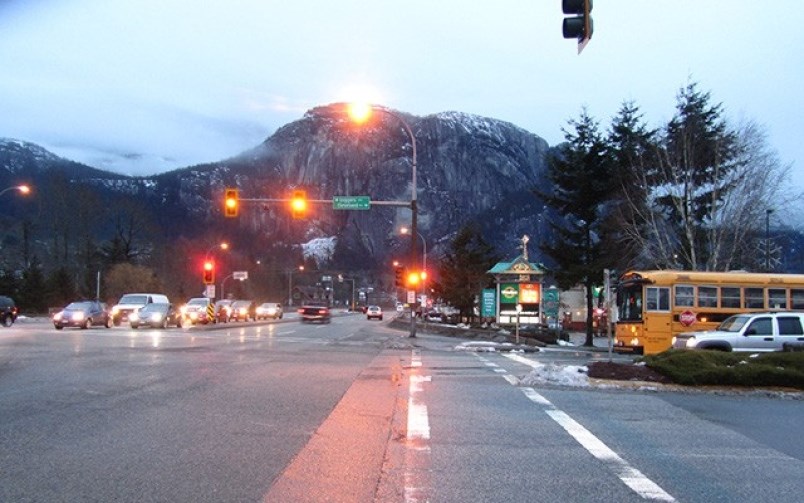At one time in some circles, Squamish was perceived as a town that toppled off the back of a turnip truck. For those folks, this community was simply a convenient pit stop on the way to Whistler. It had an unflattering reputation as place where outsiders in the form of tree huggers were as welcome as a hungry swarm of mosquitoes in a nudist camp.
Made-in-Squamish T-shirts and bumper stickers bearing the “Think Fast Hippie” slogan were an unabashed admission of that rancorous relationship.
These days, visitors and prospective residents are busting the door down to get a piece of the “Hardwired for Adventure” action.
Nonetheless, hints of that bad rap remain. When it comes to the political and commercial corridors of power, to a certain extent Squamish is still being viewed as an insignificant backwater with limited clout at the negotiation table. That may be one of the reasons why gas prices are so ridiculously high compared to neighbouring jurisdictions.
Looking back, in the estimation of more than a few locals, we got relegated to also-ran status during the Winter Olympic Games. Banners announcing that Squamish was “The Heart of 2010” were dutifully withdrawn from public displays when Games officials declared they were copyright infringement. Additionally, a ferry terminal planned for Squamish to accommodate Games-goers was kiboshed by Vancouver Olympic managers.
And after years of futile lobbying by Squamish residents, many of whom had their share of mishaps on the Sea to Sky Highway, the provincial government magically discovered $750 million to pave the way for the highway upgrade project. That sudden burst of largesse was chiefly triggered to appease the powerful International Olympic Committee.
“There’s no question the awarding of the Olympics really galvanized us in terms of now having a real reason and a timeline to make sure it gets done,” said Kevin Falcon, then B.C.’s transportation minister. Of course, who cares about the journey, it’s the destination that counts.
In the end, we benefitted substantially from the highway makeover.
Our historical lack of gravitas is also one of the factors stalling regional transit.
The official reason is the gatekeepers at the Ministry of Transportation and Infrastructure now claim the funding proposal submitted by Squamish and allied stakeholders is no longer viable, notwithstanding that it mirrors the strategy on the Lower Mainland and in the Capital Regional District. Unofficially, as Squamish Mayor Karen Elliott noted last February during a meeting with West Vancouver-Sea to Sky MLA Jordan Sturdy, “Somehow our request for regional transit doesn’t seem urgent to the ministry.”
If we look at the long-awaited reconfiguration of the hazardous Highway 99/Cleveland Avenue intersection, the same pattern is emerging. In 2016, a traffic safety study pointed to an average of nearly 50 collisions annually between 2011 and 2015 at that ill-fated junction. A range of options was proposed, including the construction of an eastbound-southbound right-turn lane and increased U-turn and speed enforcement by the RCMP. Heading into 2020, major improvements to that fender bender magnet have yet to materialize.
To call on Rodney Dangerfield, the late, great U.S. stand-up comedian, “I tell ya, we just don’t get no respect.”




